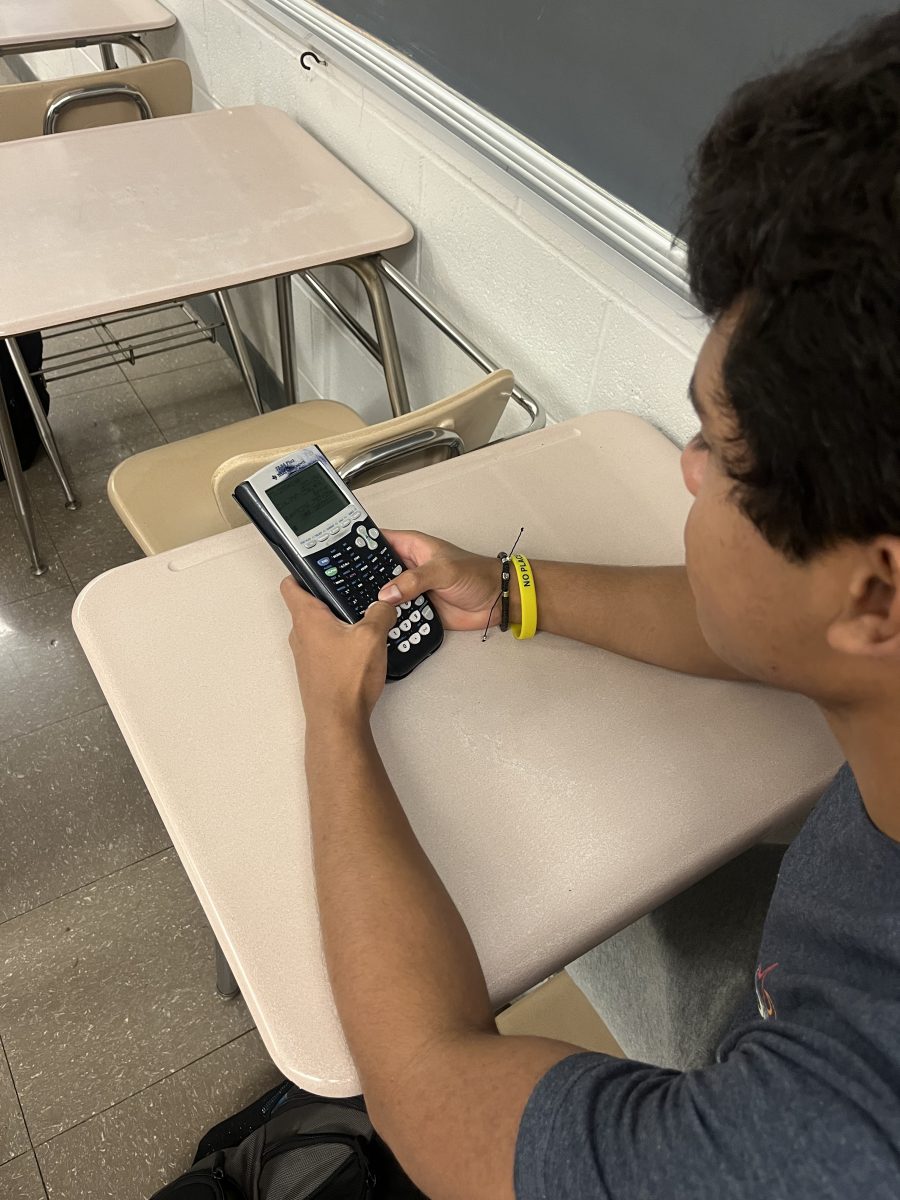For students in any high school level math class, calculators are an important tool that allows for complex problems to be solved. However, usage of calculators is often limited in the classroom setting because of how many steps it can cut out of a math problem.
Students and teachers offer a wide range of thoughts on what role calculators should play in math courses. Predictably, students tend to view calculators as a tool that should be available in all math settings while teachers
may see a value in learning mathematical processes without the aid of calculators.
The basis of the student argument is the fact that individuals will not be without calculators in settings outside of the classroom. “I don’t agree with the idea that they should be limited. Realistically, in the real world if you’re an engineer or doing your job and dealing with a difficult problem, it’s not like you would have to do it in your head. You would get a calculator,” junior Logan Lacy said.
The introduction of advanced calculator apps on phones makes them even more available in everyday life. Additionally, online programs can cut calculators out of the discussion completely and allow people to solve extremely complex problems with ease. “My brother is at NASA and he’s using graphical interface design programs. He’s not picking up a calculator and it does all the math for him,” former math department head Chris Tucker said.
Regardless of the presence of more advanced math tools in the professional world, teachers argue that learning math processes is valuable to students. “I think you should still have a sense of numbers and if you use a calculator for everything then numbers don’t make sense. Like you should be able to tip in a restaurant without a calculator,” math teacher Suzanne Hosking said.
For some teachers, calculators are viewed as shortcuts for students who have not yet earned the right to use them. The idea of doing the work the hard way prepares and qualifies students for the adult world. “I think you earn that high school diploma or college diploma and it gives you the right to do things like applying for a job,” Tucker said.
However, students may believe that advanced math classes are useless for their planned career path. In their mind, calculators can help with related problems that they will solve in the future and anything more won’t be applicable. “I sometimes don’t even see the use of math in general,” junior Yael Zief said.
Teachers recognize the merit of that view but also warn against taking that perspective during your education. “I understand the point. My only caution is that you don’t really know what you’re going to end up doing. I know plenty of people who didn’t take math seriously in high school and ended up using it quite a bit, but they had to make up ground,” Tucker said.
Limitations on calculator use in school are unlikely to go away anytime soon. Teaching students the skills to deal with mathematical situations without advanced tools is still the basis of the curriculum. But that fact won’t stop students from questioning why the system is built in that way. “I think it makes sense that you should be able to use a calculator for everything in math because that’s the reason they exist. To aid you in math, right?” Lacy said.








![Editors-in-Chief Ahmed Ibrahim, Helen Manolis, Cameron Cowen, Alex Grainger, Emory Scofield, Hayley Gottesman, Rebekah Buchman and Marley Hoffman create the first print magazine of the year during the October press days. “Only a quarter of the schools in MCPS have programs that are like ours, a thriving, robust program. That makes me really sad. This is not just good for [the student journalists] to be doing this, it’s good for the entire community. What [student journalists] provide to the community is a faith in journalism and that continues for their lifetimes," Starr said.](https://woottoncommonsense.com/wp-content/uploads/2025/10/wmpoFTZkCPiVA3YXA4tnGoSsZ4KmnKYBIfr18p3l-900x1200.jpg)
Mr. Harlston • Dec 12, 2024 at 10:09 AM
“Render unto Caesar, things that are Caesar’s…” As a math teacher, I think students should use calculators for those things that the calculator is better suited for and use your brain for those things that your brain is best at! For example, I usually encourage my students to use the calculator to compute slope and linear equations, even though they should also be able to compute these things without the calculator. However, I am more interested in determining whether my students can INTERPRET what the slope and y-intercept mean. Can they look at real world problems and understand what the slope & y-intercept mean, rather than being able to simply compute those numbers with or without a calculator.